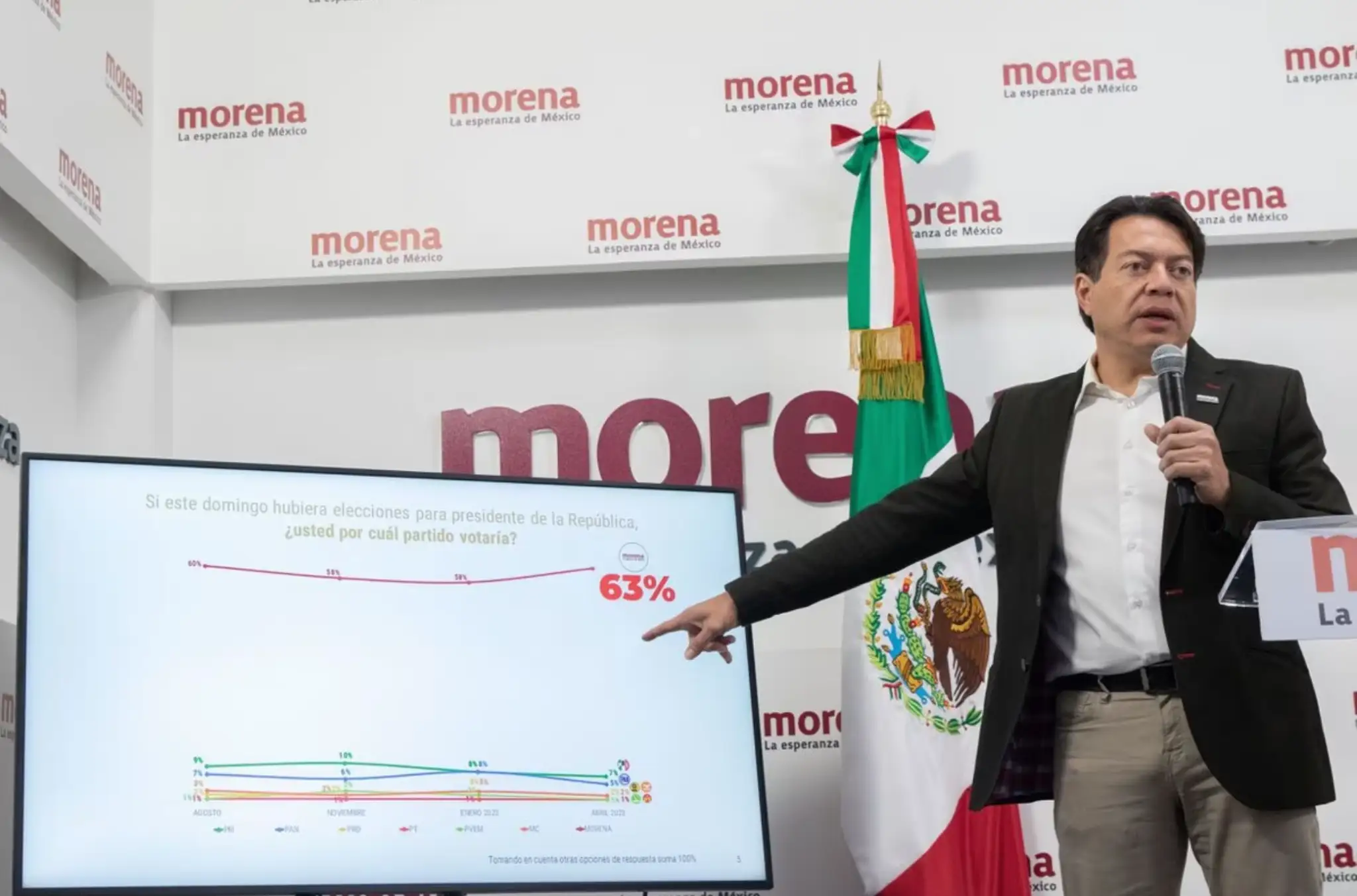The most recent internal election process for candidates, or in this case female candidates, for the presidency of the Republic in Mexico, carried out by the ruling party, the National Regeneration Movement (Morena), and the Broad Front for Mexico, an opposition coalition made up of the Institutional Revolutionary Party (PRI), the National Action Party (PAN) and the Party of the Democratic Revolution (PRD), had as a common denominator the use of polls as the sole criterion for selection.
It is important to mention that this is not the first time that a political party or coalition of parties in Mexico has used the results of polls as the main criterion for the selection of candidates for different levels of government, including the presidency of the Republic. What is significant is that both Morena and the Broad Front for México have decided to renounce any electoral process.
The case of Morena stands out; since its foundation, this party has ruled out internal elections for the designation of its candidates. This was endorsed by the President of the Republic himself, Andrés Manuel López Obrador, when he stated in June of this year, in one of his many morning press conferences, that the poll as a method of designation, being part of the party’s statutes, “has proven its effectiveness” and “has avoided ruptures”.
On its part, the Broad Front for Mexico, after successive rounds of discarding its different pre-candidates, decided not to carry out the last phase of the process, the citizen consultation among the persons registered for such purpose, and to remain only with the results of the public opinion surveys which gave Xóchitl Gálvez as the winner over Beatriz Paredes by more than 15 percentage points on average.
In this regard, what are the implications of the de facto substitution of any electoral process by the demoscopic results for democracy in general and for the internal democracy of political parties in particular?
In principle, the decision of the ruling party and the opposition coalition to introduce the survey as a sort of equivalent mechanism of participatory democracy to avoid conflicts or ruptures, or in an effort to avoid a low voter turnout, has been far from producing a greater rapprochement with the population. In fact, it is worth remembering the failure in terms of citizen participation in the mandate revocation consultation carried out by the National Electoral Institute (INE) in 2022, promoted by the presidency of the Republic. On the contrary, this decision strengthens the hypothesis of political scientist Peter Mair, who spoke of “governing the void” and suggests that, due to the shortcomings of political parties, democracy is gradually being stripped of its popular component, moving away from the demos.
What we have just witnessed in Mexico strengthens this hypothesis. Political parties, by limiting themselves solely to polls as an elective criterion, have led to two scenarios: 1) the very cycle of democratic political deliberation is broken; this bet that all deliberation ends in aggregation, as suggested by the political scientist Adam Przeworski, ends up being frustrated, and 2) it is taken for granted that the very result of the poll is de facto coincident with hypothetical electoral results.
This last point brings us face to face with the debate about the degree of accuracy of polls. A debate that is related to the degree of concordance that is presumed to exist, or not, between the particular distribution of opinions regarding voting intentions and the final distribution of electoral results.
The aforementioned matter is the very source of the characteristic of any democratic regime: substantive uncertainty, which translates into the fact that no one can guarantee ex-ante the outcome of an electoral contest; in the fact that no one can answer a priori with absolute certainty a simple question: Who is going to win the elections?
The inability of our party system to carry out internal elections has canceled any possibility of substantive uncertainty, a primordial requirement of any political organization of this type that claims to be democratic. The legitimacy of the polls, of a technical nature, is imposed on the democratic legitimacy that comes from the vote.
*This text is written within the framework of the X WAPOR Latam congress: www.waporlatinoamerica.org
*Translated by Janaína Ruviaro da Silva from the original in Spanish.











